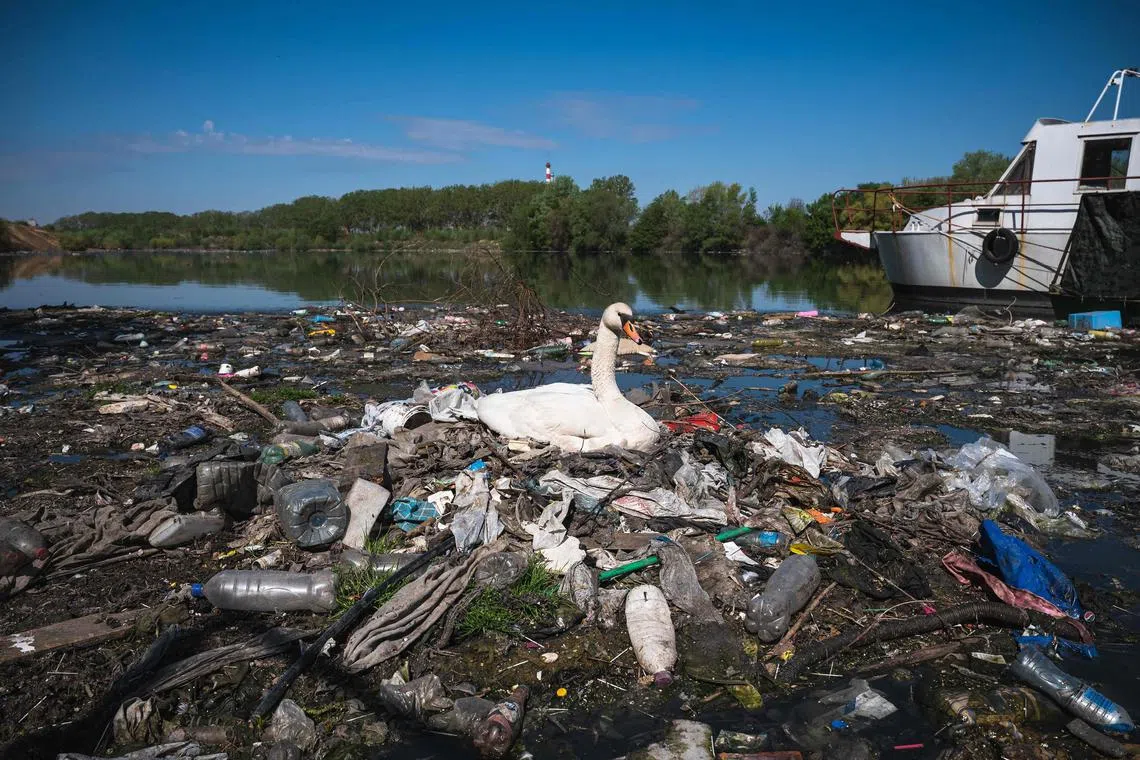For subscribers
Our plastic way of life is poisoning us
Maybe this has been our fate all along, to achieve final communion with our own garbage.
Sign up now: Get ST's newsletters delivered to your inbox

One of the more unsettling elements of the whole microplastics situation is its strangely democratic pervasiveness, says the writer.
PHOTO: AFP
There is plastic in our bodies; it is in our lungs and in our bowels and in the blood that pulses through us. We can’t see it, and we can’t feel it, but it is there. It is there in the water we drink and the food we eat, and even in the air that we breathe. We don’t know, yet, what it is doing to us, because we have only quite recently become aware of its presence; but since we have learnt of it, it has become a source of profound and multifarious cultural anxiety.
Maybe it is nothing; maybe it is fine. Maybe this jumble of fragments – bits of water bottles, tyres, polystyrene packaging, microbeads from cosmetics – is washing through us and causing no particular harm. But even if that was true, there would still remain the psychological impact of the knowledge that there is plastic in our flesh. This knowledge registers, in some vague way, as apocalyptic; it has the feel of a backhanded divine vengeance, sly and poetically appropriate. Maybe this has been our fate all along, to achieve final communion with our own garbage.


